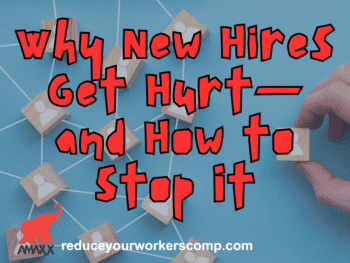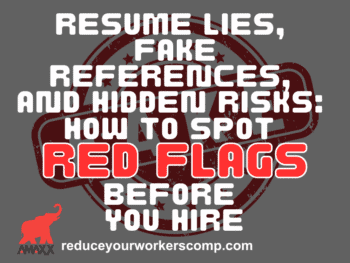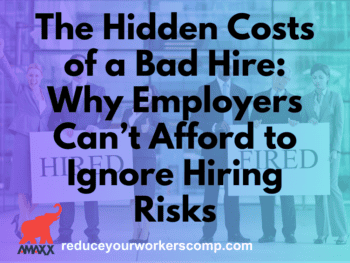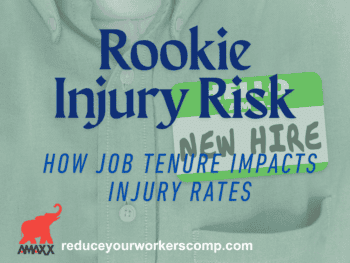Companies Try Using Independent Contracts to Save Costs
To keep costs low, some smaller companies may use an outside work group, staffing service, other “on-call” workers, subcontractors, or independent contractors (IC). The goal of doing this is to not make them an actual “Employee” and thereby save on costs and insurance, salary, benefits, and the like.
Pretty clever! You are probably feeling pretty good about yourself. You were able to staff your job requirements all while shifting risk and injury exposure to the person that accepted the “subcontracting or independent contracting” job. So, if this Independent Contractor falls off the roof and breaks bones, who cares that is their problem! Right?
Probably not. Actually you may incur some major penalties (depends on Jurisdiction) for trying to do something like this. Case in point—this happened to a person I know. He is a 28 year old self-employed General Contractor. He found a guy on Craigslist looking for help on a roofing job. He was slow as far as work went so he decided to help out. The hiring guy sent him the location info, and they began working. The hiring guy controlled the work hours, the location, the pay, and the duties that my friend would be doing.
“Independent Contractor” Fell Off Roof & Awarded Work Comp Benefits
One day they were to finish a roof on a home they were renovating. They had a scissor lift for one more day, so they had to get the job done or else it would cost more rental fees, which of course the hiring guy wanted to avoid if possible. He told my pal to head up and check if the roof shingles were frozen since it had snowed the night before. He crawls out the window to get roof access, then proceeds to slip off the roof and fall a few stories to the ground. He sustained severely fractured ankles both requiring ORIF, plates and screws, and so on. The poor guy was bedridden for almost 4 months, and has a rough road to recovery. He has undergone three bilateral surgeries thus far, with the odds of needing bilateral ankle replacements in the near future if he doesn’t see better progress. In addition, if the ankle replacements fail the docs will most likely want to do ankle fusions, which mean years of pain, stiffness, arthritis, knee problems, back issues, hip problems due to altered gait, and so on.
After the accident he consulted an attorney, who filed suit against the hiring guy, and the house owner. Both carriers for the hiring party and the home owner quickly opined that he was an Independent Contractor, not an employee, and he was to use his own health insurance carrier for benefits. They even went so far as to not attend a scheduled mediation with a Judge. The Judge deemed the hiring party and the home owner at fault, and handed down a $2.5 million dollar Judgment.
Even though my friend was not deemed an “employee” of the hiring guy, it didn’t matter. Because the hiring guy had control of job duties, controlled hours worked, and wages owed, that was enough in this Jurisdiction. I am sure they will appeal this, but the fact remains that even though they thought they were in the clear, they got handed a massive monetary amount to be owed to my friend.
Hiring An Independent Contractor Comes With Risks
This risk of thinking you are hiring an Independent Contractor comes with its share of horrors, and I am sure this is a lot more common than people think. It is easy to assume that because a worker is not an official employee of yours that you do not have any risk involved. It is probably the other way around. You should always discuss your situation with legal counsel, as well as keep in mind these other factors:
- Control of work and wages
If you deem that you are the one controlling the hours worked, the wages paid, and the duties performed, then chances are you are going to have some exposure whether your worker is an employee or not. Are expenses reimbursed? Do you pay mileage? Are you supplying tools and supplies? Did your temp worker sign any kind of waiver or do you even have a form for them to sign? If not, it may be something that can protect you from certain risk exposures.
- Does your temp worker have insurance?
Before you allow anyone to work with you in your job site, do they have their own insurance, or workers comp policy in place? Do they have their own insurance plans, pension, and vacation pay? Do they have their own staff of employees or it is just this one worker? Is the work performed their main line of business? All of these important questions need answers before you allow someone to start work.
- What is the exact relationship between the two parties?
Going back to above, do you have a waiver for this worker to sign that excuses you from any and all liability, both seen and unseen, known and unknown? If you do not have any documentation in place, you should consult Legal Counsel to draft up some sort of waiver to protect you should an injury occur. You may not be able to waive all of your liability, but you may be able to lessen the exposure. In a case like my friend, you never know what is going to happen on any given day. This is especially true in a construction atmosphere where you may have several different types of Independent Contractors coming and going from the premises.
Summary
Depending on your jurisdiction, there can be much criteria for a worker to pass in order for you to be free and clear from any and all exposure. If your practice is hiring a lot of workers independent contractors, it will always be best to err on the side of caution. The answers the three questions above will help you determine you get started. Do your homework, and take the time to talk to an attorney that specializes in this practice. You will thank yourself later, just in case that horrible fall should happen on your job site.
Author Michael B. Stack, CPA, Director of Operations, Amaxx Risk Solutions, Inc. is an expert in employer communication systems and part of the Amaxx team helping companies reduce their workers compensation costs by 20% to 50%. He is a writer, speaker, and website publisher. www.reduceyourworkerscomp.com. Contact: mstack@reduceyourworkerscomp.com.
©2013 Amaxx Risk Solutions, Inc. All rights reserved under International Copyright Law.



























